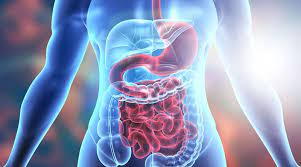Monitoring Desk
NEW YORK: Digestive issues like constipation and difficulty swallowing could potentially increase the risk of Parkinson’s disease, according to recent research.
While the connection between the gastrointestinal tract and conditions like Alzheimer’s disease, strokes, and brain aneurysms has been explored, the relationship between specific digestive disorders and Parkinson’s has received less attention.
However, a new study has shed light on this matter, suggesting that certain gut conditions might serve as early indicators of Parkinson’s disease. The research is notable for providing substantial observational evidence that the presence of clinical gut problems could predict the future development of Parkinson’s disease, as stated by the authors.
The study involved a comparison of medical records from three groups: 24,624 individuals diagnosed with Parkinson’s, 19,046 with Alzheimer’s, and 23,942 with cerebrovascular disease.
Researchers matched these groups based on age, gender, race, ethnicity, and length of diagnosis. They then analyzed the frequency of gastrointestinal conditions in the six years leading up to the respective diagnoses.
By also examining medical records of individuals diagnosed with 18 different gut conditions and tracking their health over five years, researchers found a higher susceptibility to Parkinson’s disease among those with gut issues.
Specifically, individuals experiencing constipation, difficulty swallowing, and Gastroparesis (delayed stomach-to-intestine digestion) were over two times more likely to develop Parkinson’s within the five years preceding their diagnosis. Additionally, irritable bowel syndrome (IBS) without diarrhea was associated with a 17% increased risk.
Certain gastrointestinal symptoms like functional dyspepsia, IBS with diarrhea, and diarrhea accompanied by fecal incontinence were more prevalent among individuals who later developed Parkinson’s disease. However, these symptoms were also present before the onset of Alzheimer’s disease, aneurysms, or strokes.
Interestingly, conditions like inflammatory bowel disease did not appear to elevate the risk of Parkinson’s development, the study found.
The findings emphasize the need for heightened awareness of gut problems among individuals at a higher risk of Parkinson’s disease.
Additionally, researchers encourage further exploration of the links between gastrointestinal conditions and other neurological disorders such as Alzheimer’s, strokes, and aneurysms.
Parkinson’s UK estimates that the UK will have around 172,000 people affected by Parkinson’s disease by 2030. Globally, the World Health Organization reports 8.5 million cases of the disease.
Reacting to these findings, Clare Bale, associate director of research at Parkinson’s UK, stated that the research adds weight to the emerging evidence suggesting that gut issues might function as early indicators of Parkinson’s.
Understanding the role of gut issues in the initial stages of Parkinson’s could potentially lead to early detection, improved symptom management, and even strategies to slow or halt the disease’s progression.
Kim Barrett, vice-dean for research at the University of California, Davis, recommended that doctors should be attentive to these gut conditions when evaluating patients at risk of Parkinson’s, even before neurological symptoms appear. However, she cautioned that the findings are currently correlational, leaving open the possibility of an unknown third risk factor linking both gastrointestinal conditions and Parkinson’s disease.







